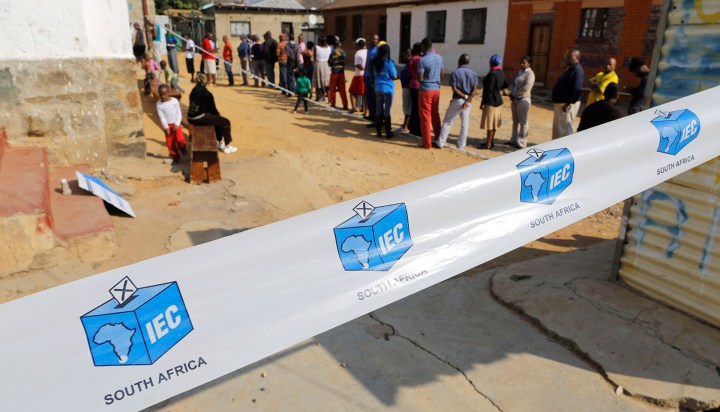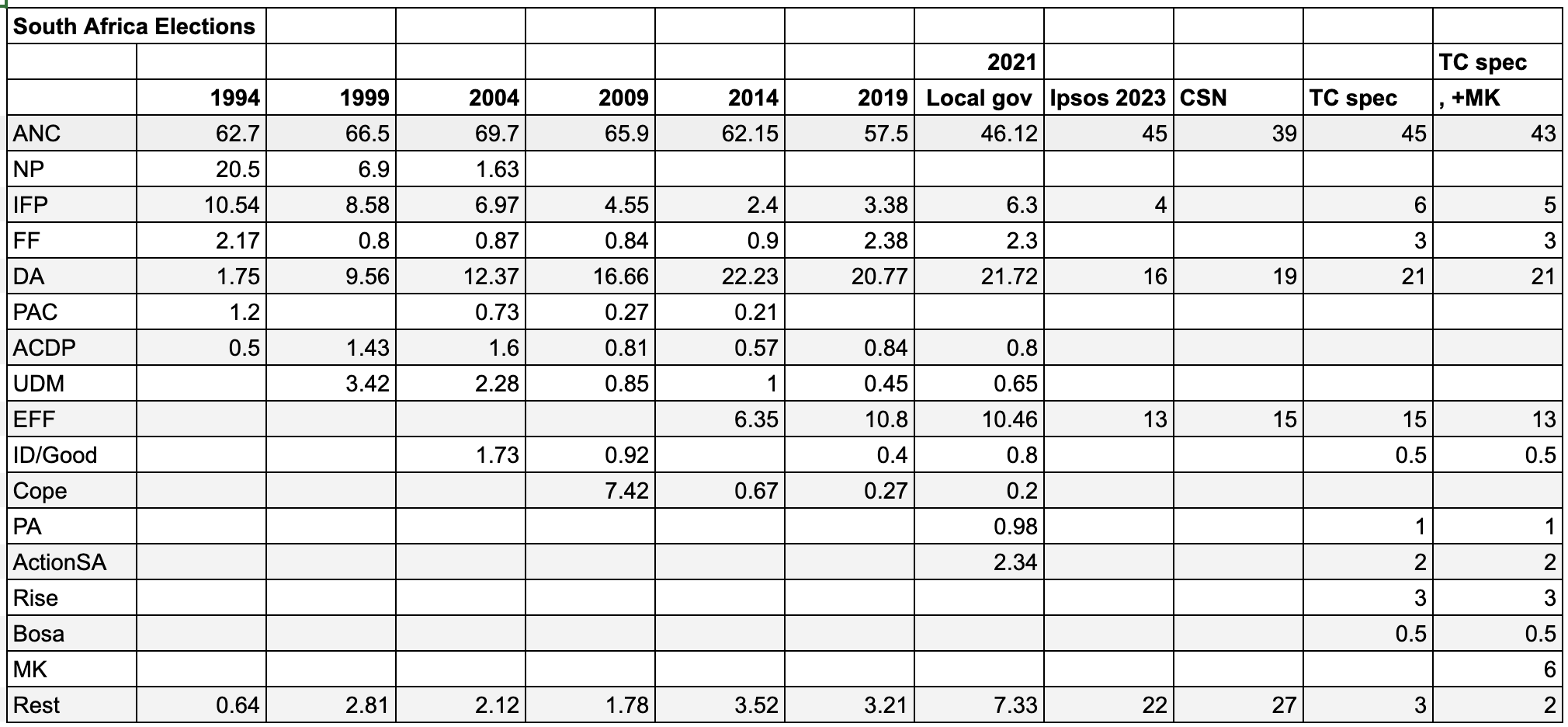BUSINESS REFLECTION
After the Bell: SA’s 2024 election will be both crucially important and inconsequential

What’s going to happen in the upcoming general election? Obviously, this is pure speculation; we don’t know what is going to happen and a lot could and probably will change between now and then. But it’s important to guess based on data, so I’ve hooked some out to gaze into this entrancing crystal ball.
This election is going to be both monumentally significant and, at the same time, not so consequential. That’s both good news and a concern for the SA economy because we want and need change, but not the change we are likely to see.
The biggest issue for the markets is whether the ANC will lose so much support it will be forced to go into coalition with the EFF. If that happens, SA’s economy gets a big knock. Apologists will tell you that “negative journalists” (like me) tend to overstate the actual shift such a merger might cause in policy direction because the ANC will still effectively be in charge. For decades I’ve been told by my soft-left colleagues that my concerns about the ANC’s policy drift have been overstated. Until 2009, they were right. Since 2009, I’ve been right.
It’s indisputable that an ANC/EFF administration, which a whole bunch of ANC leaders are not only in favour of but are actively hoping for, will be a bad thing because it will reinforce all of the ANC’s bad instincts and ameliorate its good instincts.
Let’s have a look at the data. This is how elections have gone since the advent of democracy in 1994 and includes the 2022 local government elections, the most recent Ipsos survey taken last year, the survey done by the now-defunct Change Starts Now “movement”, and my own speculation, including and excluding the MK party.

The first thing to notice is the ANC’s steadily declining share of the vote. The second thing to notice is the ANC’s continuing dominance of SA’s political system despite that decline. While the ANC’s support has dropped precipitously, it’s crucial to note that it dropped from a very high base, leaving it still overwhelmingly the party of choice for South Africans. Just look at the gap between the ANC and its nearest rival; it’s enormous.
In a sense, that alone captures the notion of an election which is both important and inconsequential. The important part is obvious: there is a very good chance the ANC will drop below 50% of the votes cast, which is important because it means the post-election period is going to be marked by some rather intense negotiations.
Why is the ANC’s support declining? Most obviously, because its management of key resources, from Eskom to Transnet, to city institutions, to road management, to crime is increasingly failing. Simultaneously, the party-of-liberation argument, which the ANC has relied on for so long, is fading as new generations are added to the voting core. And third, because the whole political system is now developing an aura of irrelevance and disillusionment, reducing voter turnout.
If the ANC does fall below 50%, the post-election negotiations are going to be complicated because the Change Starts Now poll, which is extremely pessimistic about the ANC’s prospects (far too pessimistic, in my view), suggests the ANC will also lose its majority in all but two provinces. I think this is very unlikely, but there is no question that the administration of KZN will be contested.
DA flatlines
The other thing to notice about the history of SA’s elections is how the DA has flatlined. The party has changed leaders, political orientations and even major policies. But it seems to be stuck at around the 20% level. I think this is both disappointing and somewhat inevitable.
That a party is unable to make gains while its main opposition is imploding is embarrassing, to say the least. But the fact is that if you add up “other” races in SA, particularly as voters rather than as the total population division, you get to around 20%. You could say this indicates that the DA is stuck in — and needs to break out of — this racial laager. But every time it tries, it loses more support than it gains; it’s hard.
The third and most important thing to notice about my predictions, even with the inclusion of the MK party, is that the ANC’s opportunities for building a cross-party coalition without having to resort to including the EFF are very good. But the inclusion of MK does make a difference. If you assume I’m correct that the party gets 6% of the vote, drawing a bit from the IFP, a bit from the EFF and a bit from the ANC, it means that suddenly the IFP will be a necessary part of the ANC’s governing coalition.
Where could my predictions be wrong? Well, everywhere. But it’s especially vulnerable in two respects: the EFF vote may be underestimated, but I don’t think so. An increase from 10.5% to 15% is a big jump for the EFF. Second, the polls might be overestimating EFF support — the EFF actually lost support if you compare the 2019 elections to the local government elections, in which you would have expected the EFF to do well.
The MK party is a completely wild card. I’ve put it in at 6% of the vote, on the assumption that its support will be focused in KZN, our most populous province. But it could climb higher if it develops a presence outside the province. I think Rise Mzansi has the potential to surprise on the upside, but for a new party, 3% of the total vote would be a solid performance the first time out. We will see.
Anyway, by all means, lay on criticisms and alternative scenarios — elections should be fun, and predicting the result is part of it. That’s all I want to suggest at this point. DM




















 Become an Insider
Become an Insider
Comments - Please login in order to comment.